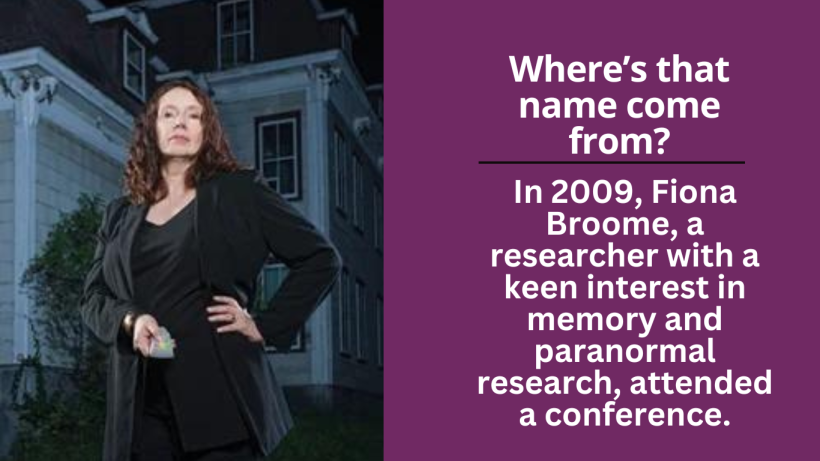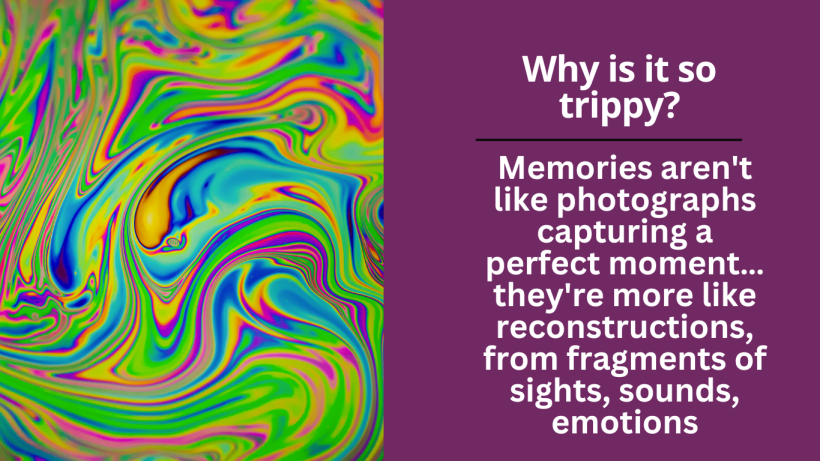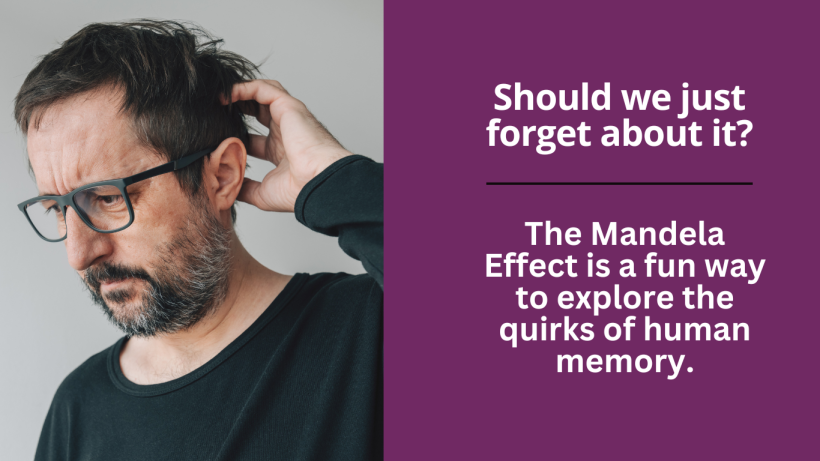Have you ever argued with a friend about a movie scene, only to discover you both remembered it incorrectly? Did the past change from what you remembered, were you abducted by aliens and reprogrammed, or maybe you are from an alternate dimension. Or maybe it isn’t just forgetfulness; it might be the Mandela Effect!
What once started as just a way of explaining misremembering quickly became a massive conspiracy. Today, it goes almost hand in hand to hear the phrase Mandela Effect coupled with things like alternate dimensions, alien abductions, and the past being rewritten thanks to particle experiments. Today we look into the the origins and some of the oddest Mandela Effects out there and you can decide about The Mandela Effect: Deja Vu or Collective False Memory. Let’s get into it.
- Where’d that Name Come From? A Mandela Effect Mystery
- Why is it So Trippy? A Dive into Memory Mishaps
- What about before the Mandela Effect?
- Is it Aliens or the Matrix? The Mandela Effect Gets Weird
- Should We Just Forget About It?

Where’d that Name Come From? A Mandela Effect Mystery
It is a good bet that each of you, reading this article, has heard of or even may have expereinces the phenomenon called the Mandela Effect. But, do you know where the term came from and how it was named? The origin story of the Mandela Effect itself is a prime example of the phenomenon! Here’s the deeper dive:
In 2009, Fiona Broome, a researcher with a keen interest in memory and paranormal research, attended a conference. During a conversation, she mentioned her clear memory of Nelson Mandela dying in prison during the 1980s. To her surprise, many others at the conference shared the same vivid recollection. The truth, of course, is that Nelson Mandela, the iconic South African leader, passed away in 2013.
This widespread false memory sparked Broome’s curiosity. She delved deeper, investigating online forums and talking to more people. She discovered a large number of individuals who shared the same mistaken belief about Mandela’s death. It wasn’t just a small group – it seemed a significant portion of the population had this same false memory.
Here’s the twist: Broome wasn’t the first person to experience this kind of shared memory error. People have been encountering these memory mishaps for ages. But Broome was the first to give it a name. She decided to call it the “Mandela Effect” to honor the leader whose death sparked her investigation and perfectly captured the essence of the phenomenon – a large group of people sharing the same false memory.
So, the Mandela Effect itself is kind of a Mandela Effect! It’s a fascinating example of how our memories can work in strange ways, even when it comes to something as significant as the passing of a world leader.

Why is it So Trippy? A Dive into Memory Mishaps
The Mandela Effect is like finding out your favorite childhood blanket wasn’t blue with dinosaurs, but green with spaceships! It shakes our confidence in our own memories and highlights the fascinating, yet sometimes frustrating,fallibility of the human brain.
Our brains are like incredible information filing cabinets, constantly taking in and storing experiences. But unlike a perfectly organized filing cabinet, our memories are more like a messy attic. Over time, details get jumbled, blended with other memories, or even completely forgotten. This is because memories aren’t like photographs capturing a perfect moment. Instead, they’re more like reconstructions, pieced together from fragments of sights, sounds, emotions, and even things we’ve heard or seen from others.
The Mandela Effect taps into this inherent fuzziness of memory. Imagine watching a movie with a friend, and later discussing a particularly funny scene. While you both might remember the scene being hilarious, your recollections of the specific details (like what the characters said or what the setting looked like) might differ slightly. This is because each brain processes and stores information a little differently. Now, imagine this happening on a larger scale, with hundreds or even thousands of people misremembering the same detail. That’s the trippy part of the Mandela Effect – it shows how our individual memory quirks can be amplified when shared by a larger group. It’s a mind-bending exploration of how our brains work (or sometimes don’t work!)
Here’s a deeper dive into this fascinating, if not a little unsettling, topic:
Core Characteristics:
- Shared False Memories: The key feature is that many people believe the same inaccurate detail about a historical event, celebrity experience, or pop culture reference.
- Vividness and Conviction: People often hold onto these false memories with surprising tenacity, even when presented with evidence to the contrary.
- Examples Galore: From the movie quote “Luke, I am your father” (it’s actually “No, I am your father”) to the spelling of Fruit Loops (it’s Froot Loops), the Mandela Effect encompasses a wide range of misremembered details.
Possible Explanations:
- Confabulation: Our brains aren’t perfect memory machines. When details are fuzzy, we unconsciously fill in the gaps with plausible (but incorrect) information.
- False Memory Implantation: Social suggestion is powerful. Hearing others recount a (false) memory can trick us into believing it’s our own.
Misinformation in Media: Subtle differences in movie scenes, book illustrations, or even early internet versions of logos can create lasting but inaccurate memories.

What about before the Mandela Effect?
The Mandela Effect might have a catchy name that was coined in 2009, but the concept of shared false memories stretches way back in time. Here are some examples that predate the term, showing how our memories, for better or worse, have always been a bit quirky:
- The “Misquoted Proverbs” Club: Think about some classic proverbs. Does “a stitch in time saves nine” sound right? Well, it actually is “a stitch in time saves ten.” Many people misremember these sayings, highlighting how even familiar phrases can get jumbled in our minds over time.
- The “Double Stuffed” Oreo Debate: Remember the iconic “Double Stuf” Oreo cookies? Believe it or not, there was a heated debate (pre-dating the Mandela Effect) about whether it was originally called “Double Stuff” or “Double Stuffed.” The real answer? Double Stuf, with no “ed.”
- The JFK Assassination: This historical event has been the subject of much scrutiny and conspiracy theories. One such theory, existing well before the Mandela Effect, involves the number of shots fired. Some people mistakenly believe there were only two shots, while the official record states there were multiple.
Beyond History: Pop Culture Mandela Effects
The Mandela Effect isn’t limited to historical events. Pop culture is another breeding ground for these memory mishaps.Here are some odd pop culture Mandela Effects you might recognize:
- The Missing “E” in Berenstain Bears: Many people swear the beloved children’s book series was called “The Berenstein Bears,” not “The Berenstain Bears.”
- The Monopoly Guy with a Monocle: Did the rich guy on the Monopoly board ever have a monocle? Nope, but many remember him sporting that fancy eyeglass!
- The “Scar” Misquote: The villainous Scar from “The Lion King” has a chilling line: “Long live the king!” However, some remember it as “I am the king!”
These pop culture Mandela Effects showcase how even well-known movies, books, and games can be misremembered by a large number of people. It’s a reminder that our memories, even for things we hold dear, can be surprisingly fallible.
Here are some Strange and Spooky Mandela Effects you might recognize:
- Luke, I am Your Father… Wait, No I Am!: Many remember Darth Vader saying the iconic line, “Luke, I am your father,” but it’s actually “No, I am your father.”
- Froot Loops: Toucan or Rooster?: Did Froot Loops always have a toucan mascot? Nope, it’s been a toucan since the beginning, the rooster is the mascot to Corn Flakes, the rooster’s name is Corny!
- Sinbad and the Genie?: Many remember actor Sinbad starring in a movie called “Shazaam,” but it doesn’t exist!There was a genie movie with a similar title, but it starred a different actor.

Is it Aliens or the Matrix? The Mandela Effect Gets Weird
The Mandela Effect has sparked some truly wild theories that go way beyond simple memory glitches. Here’s where things get a little out there:
- Parallel Universes and Shifting Realities: One popular theory suggests the Mandela Effect is evidence of parallel universes. The idea is that slight shifts between these universes cause our memories to become jumbled, with fragments from alternate realities bleeding into our own. Think of it like a dimensional channel surfing mishap!
- Aliens Messing with Our Minds: Another theory places the blame on mischievous extraterrestrials. Perhaps aliens are tampering with our memories for their own amusement, or maybe they’re trying to subtly alter our perception of reality. (Cue the X-Files theme song!)
- The Hadron Collider Did What?: The Large Hadron Collider (LHC), a massive particle accelerator in Europe,has become a surprising player in some Mandela Effect theories. Some believe the LHC’s powerful collisions are ripping holes in the fabric of spacetime, causing these memory inconsistencies. While the LHC is a marvel of science, there’s no scientific evidence to support this theory.
It’s important to remember that these theories, while fun to ponder, lack scientific backing. The vast majority of scientists believe the Mandela Effect can be explained by psychological factors related to memory, not interdimensional travel or mischievous aliens.

Should We Just Forget About It?
Maybe not entirely! The Mandela Effect is a cool reminder that memory isn’t always reliable. But next time you get into a debate about a movie quote, don’t blame aliens (although it would be pretty cool!). Just remember, the Mandela Effect might be to blame!
The Bottom Line: The Mandela Effect is a fun way to explore the quirks of human memory. While it might not be proof of alternate realities, it’s a great conversation starter! So next time you have a memory disagreement, keep the Mandela Effect in mind. It might just be a case of our brains playing tricks on us!
What about you, how do you feel about the Mandela Effect? Do you think it has any validity? Do you believe that our past has been changed to some new version? Is it possible that maybe we have slipped between dimensions or realities? Have you experienced any of these examples of the Mandela Effect? Maybe you have some different ones that you want to share. Let me know in the comments below. If you enjoyed this topic, let me know and I can do a deeper dive into your favorite Mandela Effect examples or others from the darkest corners of the web.
